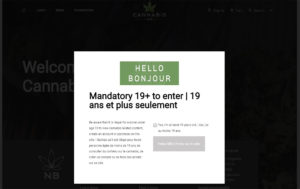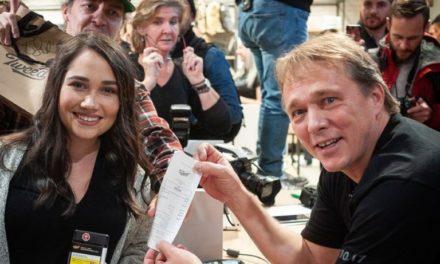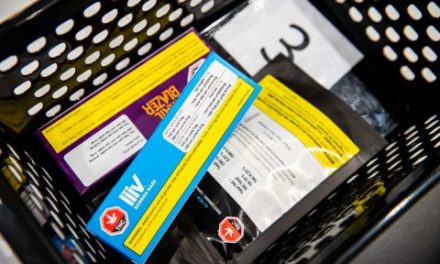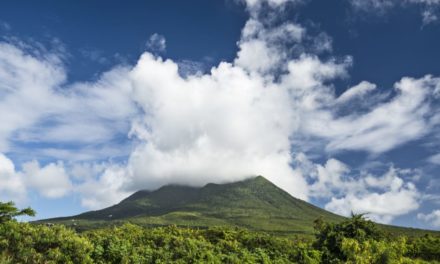It’s usually assumed that Canadian licensed cannabis producers have an advantage when it comes to international expansion, but the United States may have an edge over Canada in one country: Brazil.
The South American country has seen steady growth in patient numbers over the past year, with the majority of CBD products arriving from the U.S., not its northern neighbor.
Canadian disadvantage
The first medical cannabis import to Brazil came from Canada in 2017, but it was a one-time shipment for the daughter of Margarette Santos de Brito, the general coordinator of Apepi, a Brazilian association of medical cannabis patients.
The import took four months for Health Canada to approve.
“After my case, MedReleaf tried to sell to other patients of Apepi, many of which obtained approval from ANVISA (the Brazilian National Sanitary Surveillance Agency), but then those patients came desperate to me because after six months they were still waiting for their medicine,” Brito told Marijuana Business Daily.
The reason is how products are shipped to Brazil: CBD products from the United States are considered nutritional supplements; in Canada, they’re controlled medicines.
“That’s why Canadian companies aren’t being able to expand their market here in Brazil,” Brito said.
Each patient authorized by ANVISA also must import individually, so getting products from Canada, though possible in theory, is almost impossible in practice.
Each application is charged 600 Canadian dollars ($450.98) to recover “costs associated with screening, processing and granting or refusing to issue a permit to import or export cannabis for medical or scientific purposes as set out in the Cannabis Act and Cannabis Regulations,” Health Canada confirmed to MJBizDaily.
U.S. perspective
The caveat is that products shipped from the United States may have only residual or no THC.
This same rule applies to CBD oils shipped to Brazil from the United Kingdom, and in the case of those shipped from Switzerland, the maximum is 1% THC.
“It’s true that from the U.S., it’s easier,” said Paula Dall’Stella, medical doctor and scientific director of Amame, the Brazilian association of medicinal cannabis patients.
But it isn’t risk-free. “We also have delays and have had several shipments that never arrived,” she said.
One challenge involves confusion over what is and isn’t allowed by U.S. Customs and Border Protection.
Cassio Ismael, Brazilian commercial director of Colorado hemp producer CBDRx, told MJBizDaily the company “had some issues (with customs) that were never really understood” four years ago. In one week, four shipments were stopped.
“We have not had any other issues like this since then,” he said.
Another Colorado-based hemp company, Bluebird Botanicals, brought Brian Lysaught onboard five months ago to focus on international opportunities.
Brazil is the only country in the world where the company “knows with absolute certainty” that the CBD exports will arrive – if all of the appropriate legal steps are followed.
“Any other country has some sort of uncertainty for us,” Lysaught said.
If the product is manufactured in compliance with a state’s hemp pilot program – a provision that may change with the passage of the 2018 Farm Bill – the company simply needs to give the package to a parcel carrier, such as UPS, DHL or FedEx.
All the paperwork is done on the Brazilian side, mostly by the patients and their doctors, though companies such as Bluebird may guide them through the process.
That said, Lysaught noted that “Brazil isn’t a moneymaker” for Bluebird because significantly more work is involved than exists for local sales.
But the company sees serving the market as a part of its guiding compassionate care principle.
Exports for research
Entourage Phytolab, based in Sao Paolo, Brazil, partnered with Canada’s Canopy Growth Corp. in 2016 to develop cannabis-based pharmaceutical medical products.
“The true potential of the market depends on registered products,” said Caio Abreu, founder and CEO of Entourage.
That’s why the company focuses on drug development rather than assisting Brazilian patients with the import process.
However, Brazil doesn’t allow any medical marijuana cultivation within the country, so Entourage relies on imports for its clinical trials.
So far, only Canopy Growth has participated by making one shipment of 10 kilograms (22 pounds) of high-CBD flowers in 2016 for research purposes.
Abreu believes the actual import system that ANVISA allows, despite the growing number of patients, is supposed to be for exceptional cases.
“It’s similar to exceptional authorizations usually granted to cancer patients to be treated with new drugs,” Abreu said.
“ANVISA allows the importation of nonregistered cannabis but doesn’t endorse it.”
Moving ahead
“ANVISA would do a lot of good for the country if they’d allow bulk imports,” Bluebird’s Lysaught said.
“They would create business opportunities for local distributors and reduce prices for patients as shipping costs would be much lower on a per-unit basis.”
As more companies from Colombia and Uruguay gain access to the Brazilian market, the advantage may shift away from the U.S., according to Marco Algorta, founder of Dormul, a company with operations in Uruguay that was recently acquired by Khiron Life Sciences.
“The medical use of cannabis in Brazil has to be approached from a Latin American perspective, understanding the different nuances of the Brazilian reality,” he told MJBizDaily.
But until those changes are made, the United States will continue to have a leg up over other countries that shy away from those individual approvals.
Source of article: https://mjbizdaily.com/us-cannabis-companies-advantage-cbd-exports-brazil/


















